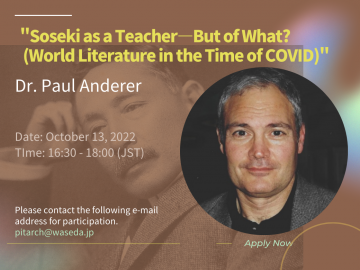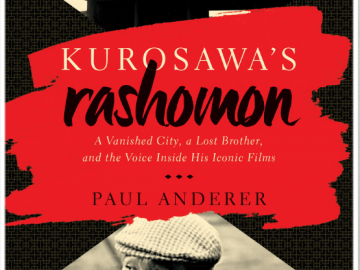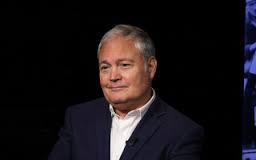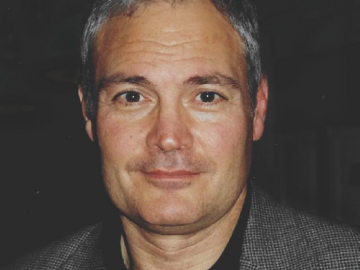The lecture ”Soseki as a Teacher—But of What? (World Literature in the Time of COVID)” by Dr. Paul Anderer from Columbia University was organized and held by the Global Japanese Studies Model Unit at Waseda University.
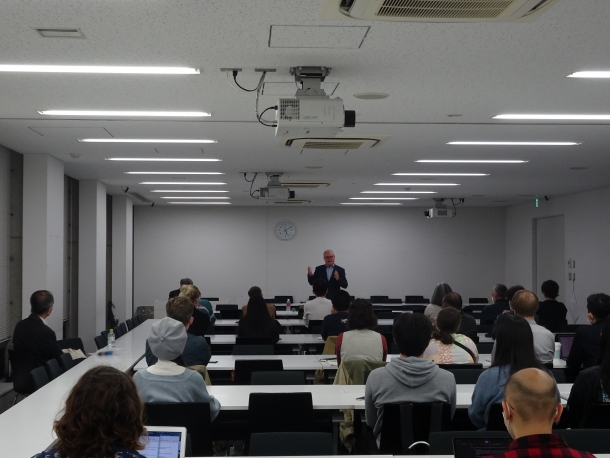
Professor Anderer’s lecture focused on the role of early 20th-century novelist and critic Natsume Sōseki as teacher. Sōseki had ample experience as a teacher before joining the Asahi, both at Matsuyama and Kumamoto, and later at Tokyo Imperial University. He also had a long-standing personal interest in Neo-Confucianism (especially the teachings of Zhu xi). Yet, what is the representation we get of teachers in some of his most famous novels such as Sanshirō, Botchan or Kokoro? There are no classrooms, no study of the classics, hardly any lessons, at most there is the one letter that Sensei writes to the narrator as the third and final part of Kokoro.
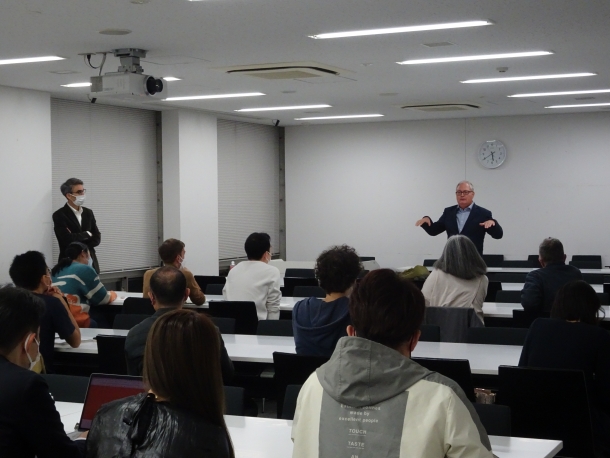
And what, if anything, does Sensei teach the narrator? The story of how he betrayed his friend K and drove him to suicide (described in a memorable scene through that bloody stain on the wall that brings to mind the Gothic echoes of his earlier “Tower of London”), Sensei pulls the narrator away from his dying father.
The opening scene of the novel describes their meeting as occurring outside of the social mass. Edwin McClellan’s translation presents Sensei and his foreign friend “making their way through the noisy crowd” to reach “a quieter and deeper part of the sea” where he eventually starts a conversation with the narrator, who has followed him there. Understood within the framework of learning, this “quieter and deeper part of the sea” represents a place that makes us question our everyday perceptions/knowledge. It hints at the existence of a larger world beyond that in which we are born and live.
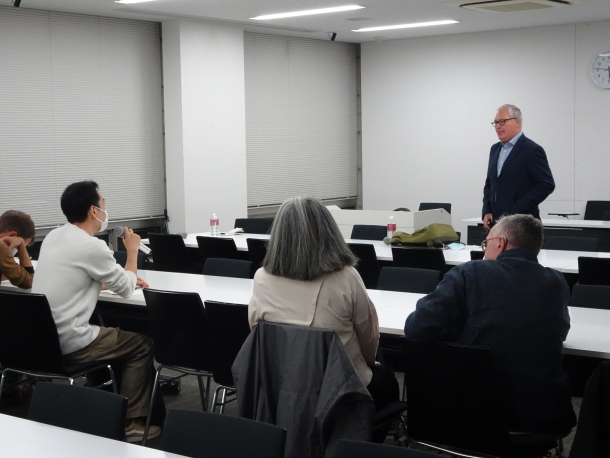
As Karatani Kōjin has argued, Sōseki’s works are not proper novels in that they do not strive for closure and completeness. They should more properly be called sketches (shasei), for they attempt to reproduce rather the fragmentary and chaotic side of real life. Seen in that way, the ending of Kokoro does not necessarily need to be tragic. After all, there is no explicit depiction of the narrator’s actions or life after reading Sensei’s letter. He may have learned from Sensei’s experience and enriched his own life through that.
In COVID times, Sōseki reminds us that learning is not always limited to formal lessons received in classrooms, but that it also comes out of daring to leave our comfort zones and venturing out into this “quieter and deeper part of the sea.”
This lecture was conducted in person at the Toyama campus. Between undergraduate and graduate students, and general public there were 33 people in attendance.
Event Overview
- Date and time: October 13, 2022, 16:30 – 18:00 (JST)
- Language: English
- Lecturer: Dr. Paul Anderer (Fred and Fannie Mack Professor, Emeritus of Humanities, Columbia University)
- Venue: Conference room 1, Bldg 33, Toyama Campus, Waseda University.
- Participation is free.
